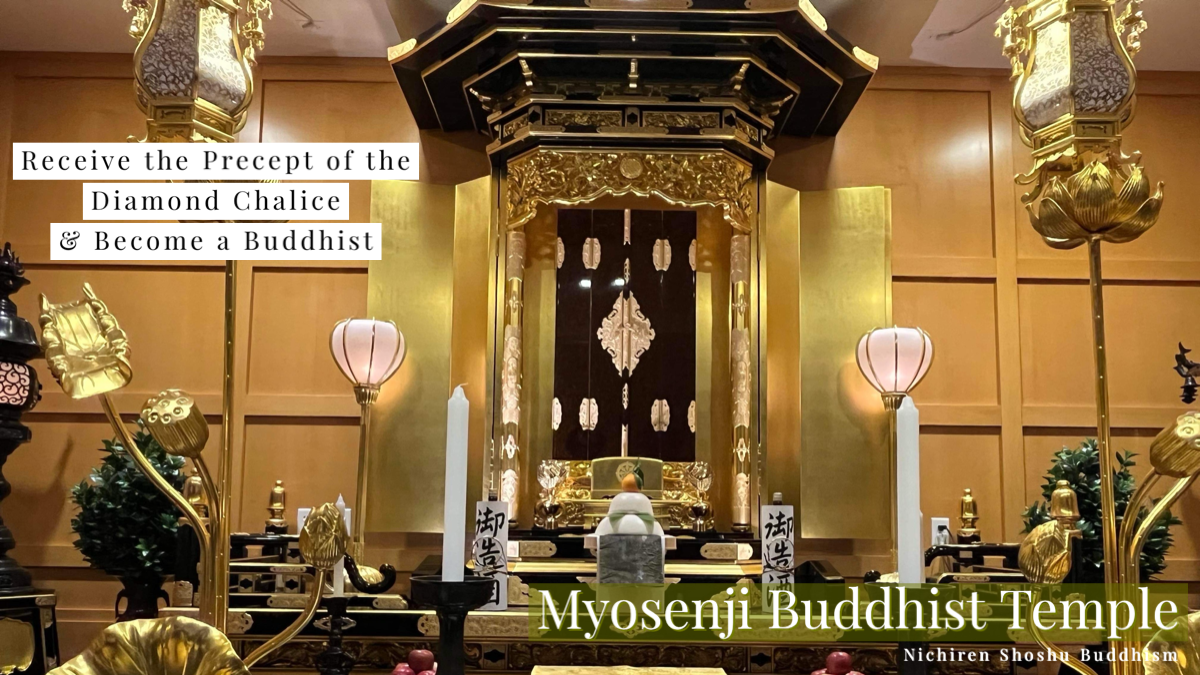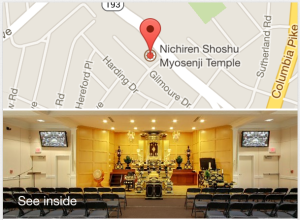- “If I was born into an abusive family does that mean in a past life I abused others?”
- “What is the connection between Karma and Alaya consciousness?”
- “Do Buddhists believe in repentance?”
This past Sunday at Myosenji Temple we had many guests turn out for our What is Karma? Introduction to Buddhism meeting. The guests came with many questions for our Chief Priest, Rev. Murata like those listed above. Guests arrived from all over the Washington-Baltimore area. Students, families, seeking individuals and their friends, young couples and even children joined us for the meeting. They learned to chant and focus their mind, how to use the Juzu (Buddhist prayer) beads and they got the chance to ask their questions directly of our Chief Priest.
March is the end of winter and the beginning of spring. After this hard cold winter, we are looking forward to seeing the blooming of the cherry trees on our Temple grounds. Join us in March for our Introduction series and become a Buddhist.
Saturday, March 8th at 2:00 p.m.
Topic: What is Buddhism? Brief History
Sunday, March 16th at 2:00 p.m.
Topic: Buddhist Concept of the Ten Worlds
Sunday, March 23rd at 11:00 a.m.
Topic: What is Karma?
Sunday, March 30th at 11:00 a.m.
Topic: Buddhist Concept of the Nine Consciousnesses
Our Founder, Nichiren Daishonin teaches about Karma in the Gosho (writings) :
“Face powder can change the color of lacquer to white, just like powder snow. Those who approach Mount Sumeru will shine with golden hue. Those who uphold the Lotus Sutra can transform their negative karma from their lifetime and since remote past into great good of the positive karma. Needless to say, all the virtue from the infinite past of no beginning will surely turn gold. Since the great man who is now deceased chanted Nam-Myoho-Renge-Kyo in his final moment, the entirety of his evil karma from his lifetime and since time without beginning will be transformed into the seed for Buddhahood. His life is characterized by the principles of ‘earthly desires are enlightenment’ (bonnō soku bodai), ‘the sufferings of birth and death are nirvana’ (shōji soku nehan) and ‘attaining Buddhahood in one’s present form’ (sokushin jōbutsu).”
(Gosho, p.1483)
Please call or email the Temple if you have any questions.


